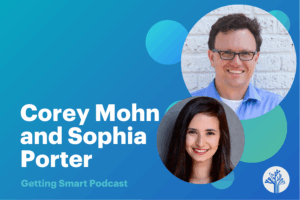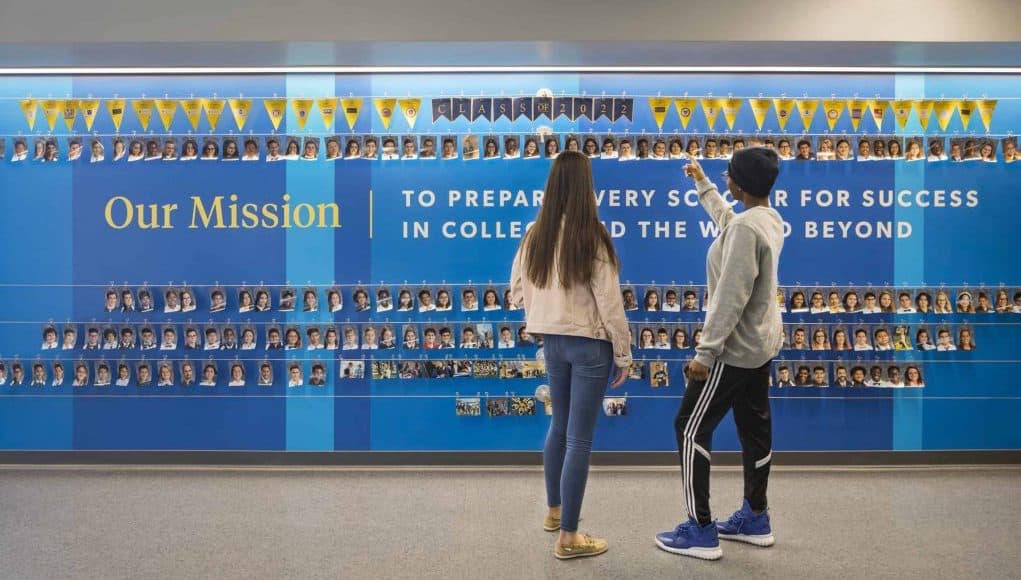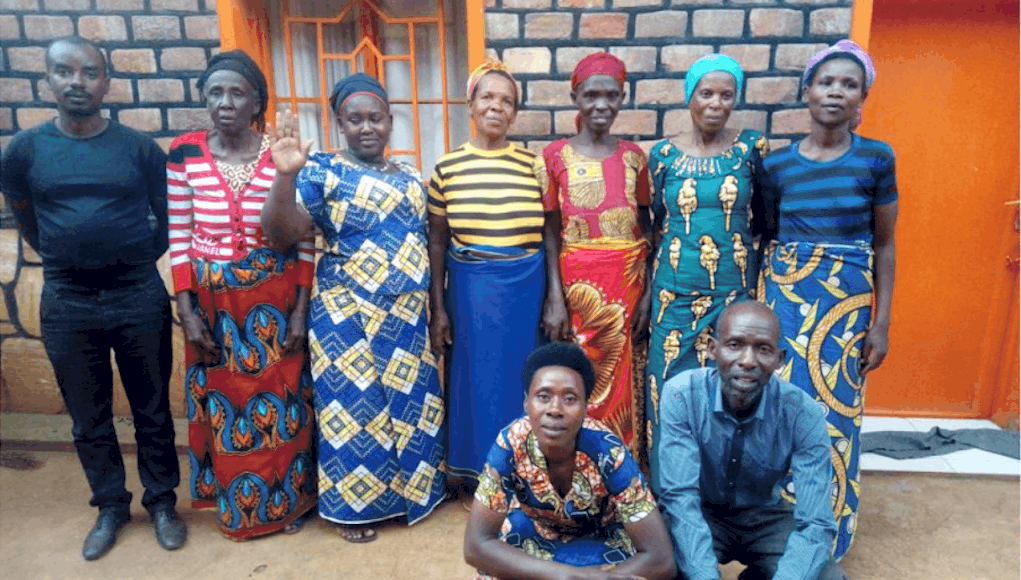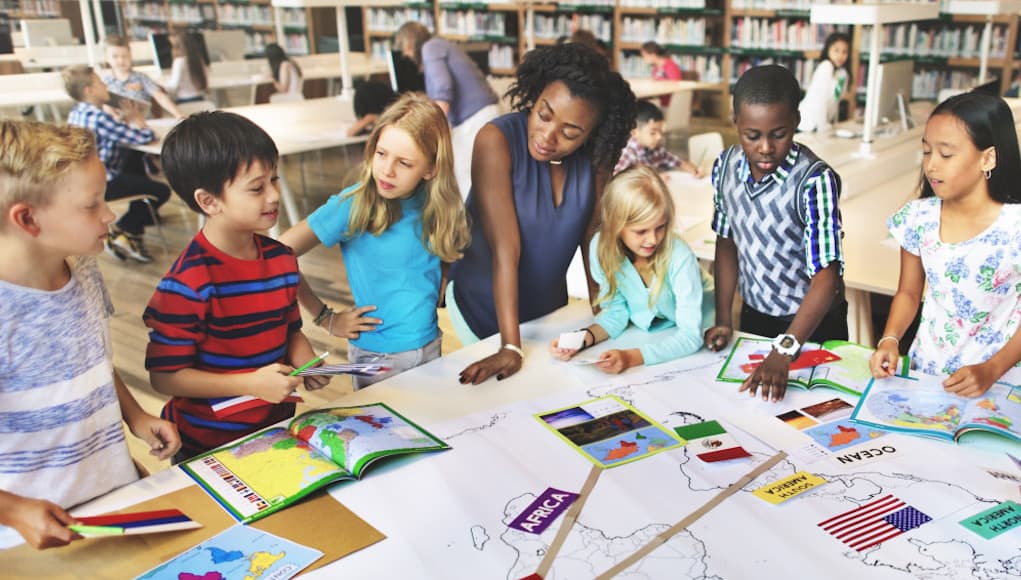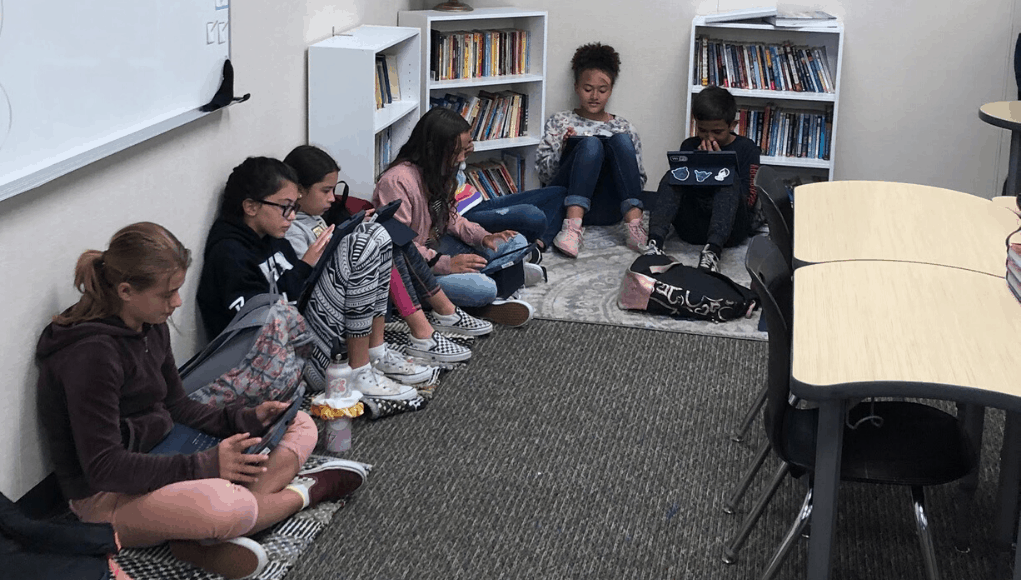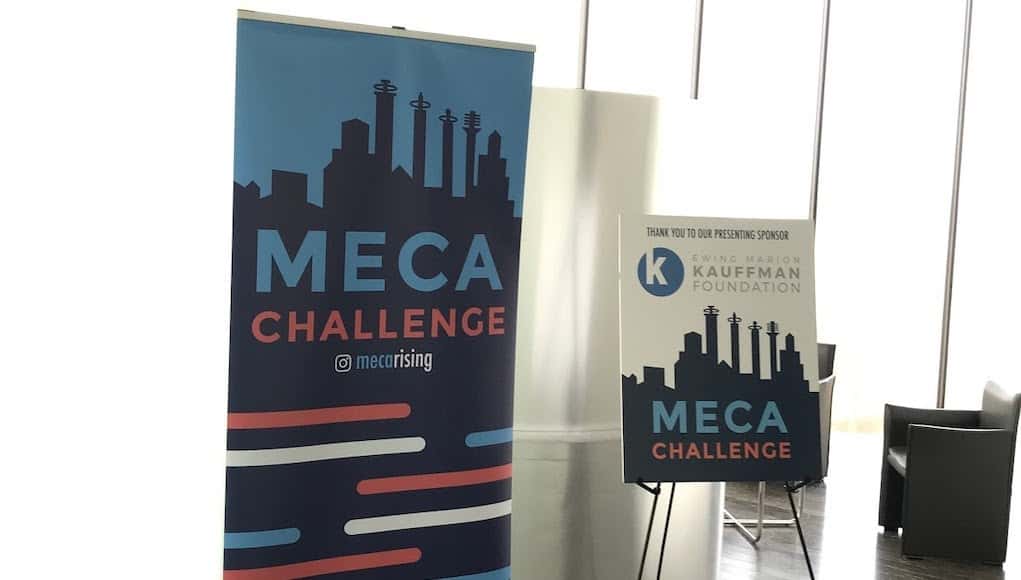Project-Based Learning
(PBL) is an instructional approach where traditional, direct classroom instruction and tests are replaced by authentic, often interdisciplinary projects, usually designed by the student with guidance from instructors/coaches, addressing real-world problems as the assessment instead of a test. It also is closely related to deeper learning, challenge-based learning, interest-based learning and more.
6 Collaboration Tools That Take Learning Beyond the Classroom
Collaboration tools can promote student choice and extend learning to meet their needs. Here are 6 options for schools to consider.
Forward-Thinking Schools Begin With Forward-Thinking Design
By: Larry Spang and Emily Grandstaff-Rice. Arrowstreet, a Boston-based architecture and design firm, is dedicated to accentuating schools’ missions through thoughtful and strategic design, creating customized spaces that support today’s teaching styles and emphasize educational facilities’ unique purposes.
Where Lifelong Skills and Curriculum Meet
By: Tynetta Harris. Focusing on the development of 36 cognitive skills is the key to deeper, lifelong learning and post high school success.
Competency-Based Approaches Focus On Skills, Relevancy and Personalization
Redefining learning outcomes and assessments by applying competency-based approaches will lead to more personalized and relevant learning.
Education Needs A Lot More ‘YES’
To foster innovation and transformational change, we must allow our students’ voices to be heard. Let’s learn to say ‘yes’ to their ideas!
Empowering Youth to Address Real-World Problems
By: Matt Piercy. Using KIVA as a service-learning project in schools has the capacity to transform students’ lives while impacting the lives of others.
Building a Learner Variability Mindset
By: Tiffany Wycoff. LINC's Co-Founder and Chief Innovation Officer explains that to build a learner variability mindset, we must implement a new equation for teaching that includes strategically planning for variability beyond skill level.
The Competing Mindsets of Technology
This month's edition of chronicling the author's return to the classroom focuses on the challenge of shifting students’ mindsets toward mobile technology from entertainment to productivity.
Civics for 2020: This Is How to Engage Future Voters
By: Kristen Thorson and Erin Gohl. From preK-12, these age-appropriate ideas for a more engaging civics education can help ensure the health of our political institutions.
Students on Creating a Space For Students
MECA Challenge, a Kansas City initiative, challenges students to solve complex and real-world problems, like designing a museum space.


